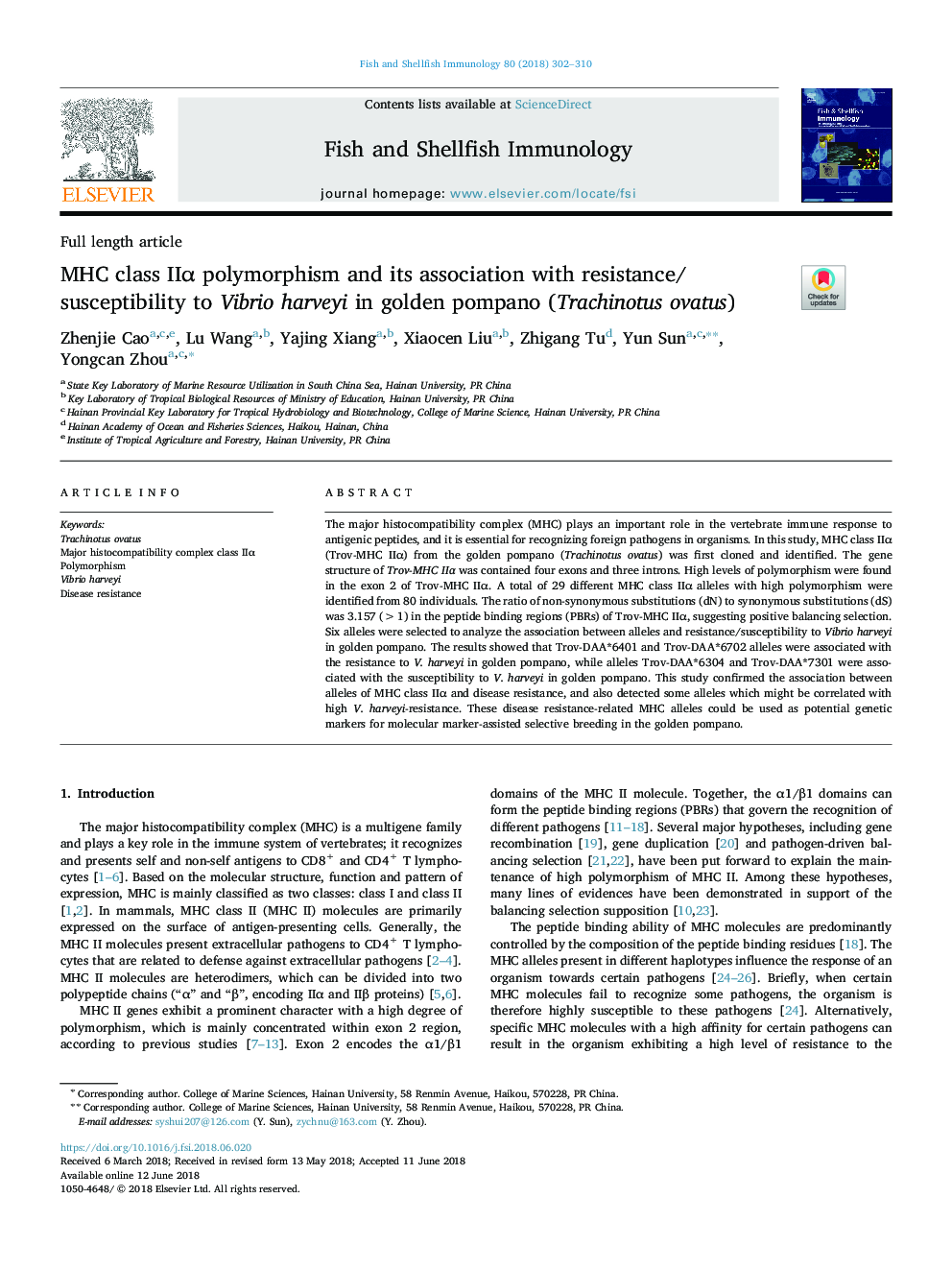| Article ID | Journal | Published Year | Pages | File Type |
|---|---|---|---|---|
| 8498227 | Fish & Shellfish Immunology | 2018 | 9 Pages |
Abstract
The major histocompatibility complex (MHC) plays an important role in the vertebrate immune response to antigenic peptides, and it is essential for recognizing foreign pathogens in organisms. In this study, MHC class IIα (Trov-MHC IIα) from the golden pompano (Trachinotus ovatus) was first cloned and identified. The gene structure of Trov-MHC IIα was contained four exons and three introns. High levels of polymorphism were found in the exon 2 of Trov-MHC IIα. A total of 29 different MHC class IIα alleles with high polymorphism were identified from 80 individuals. The ratio of non-synonymous substitutions (dN) to synonymous substitutions (dS) was 3.157 (>1) in the peptide binding regions (PBRs) of Trov-MHC IIα, suggesting positive balancing selection. Six alleles were selected to analyze the association between alleles and resistance/susceptibility to Vibrio harveyi in golden pompano. The results showed that Trov-DAA*6401 and Trov-DAA*6702 alleles were associated with the resistance to V. harveyi in golden pompano, while alleles Trov-DAA*6304 and Trov-DAA*7301 were associated with the susceptibility to V. harveyi in golden pompano. This study confirmed the association between alleles of MHC class IIα and disease resistance, and also detected some alleles which might be correlated with high V. harveyi-resistance. These disease resistance-related MHC alleles could be used as potential genetic markers for molecular marker-assisted selective breeding in the golden pompano.
Related Topics
Life Sciences
Agricultural and Biological Sciences
Aquatic Science
Authors
Zhenjie Cao, Lu Wang, Yajing Xiang, Xiaocen Liu, Zhigang Tu, Yun Sun, Yongcan Zhou,
